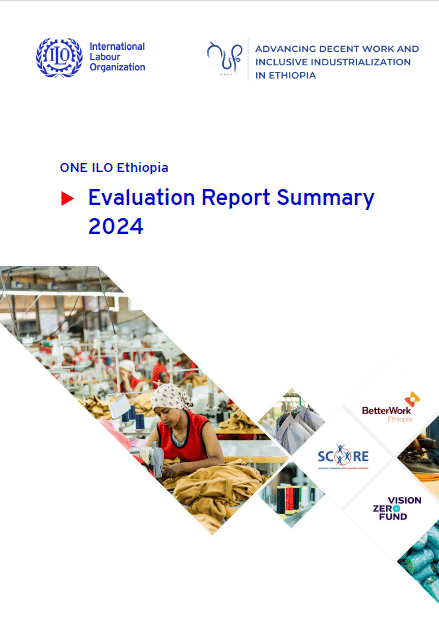The Ethiopian apparel industry, a cornerstone of the country’s light manufacturing sector, has undergone significant transformations over the past decade. However, these developments have been accompanied by challenges such as labour disputes, low wages, and structural vulnerabilities exacerbated by global and local shocks. Amidst these dynamics, the ONEILO-SIRAYE Programme has stood out as an innovative intervention, fostering sustainable improvements in workplace conditions, worker well-being, and labour administration.
A comprehensive and coordinated Programme involving ILO’s key components: Better Work, Vision Zero Fund, SCORE, LABADMIN and INWORK, the SIRAYE programme integrates various projects to enhance wages, non-wage benefits, occupational safety, and worker representation while promoting industry competitiveness and government accountability. With a strong emphasis on Ethiopia’s apparel hubs, the initiative seeks to address systemic challenges through collaborative efforts involving employers, trade unions, government officials, and civil society organizations.
Conducted by a team led by Carlos Oya and Florian Schaefer from the SOAS University of London, the study employed a robust mixed-methods approach. Two extensive worker and firm-level surveys, conducted in 2019 and 2023, form the core of its quantitative analysis, complemented by qualitative insights from over 100 in-depth interviews with workers, managers, trade union representatives, and government officials. This combination of data not only provides a nuanced understanding of programme’s outcomes but also sheds light on the factors driving these changes.
Findings reveal encouraging progress: wage growth in SIRAYE-supported factories outpaced that of others, working hours declined while non-wage benefits improved significantly, and incidents of harassment reduced notebly. However, challenges such as inflation, resistance to union activities, and the absence of a minimum wage policy highlight the need for sustained efforts.
As Ethiopia charts its path toward inclusive industrial growth, the lessons from SIRAYE’s evaluation offer a blueprint for building resilient, equitable, and sustainable labour practices.
